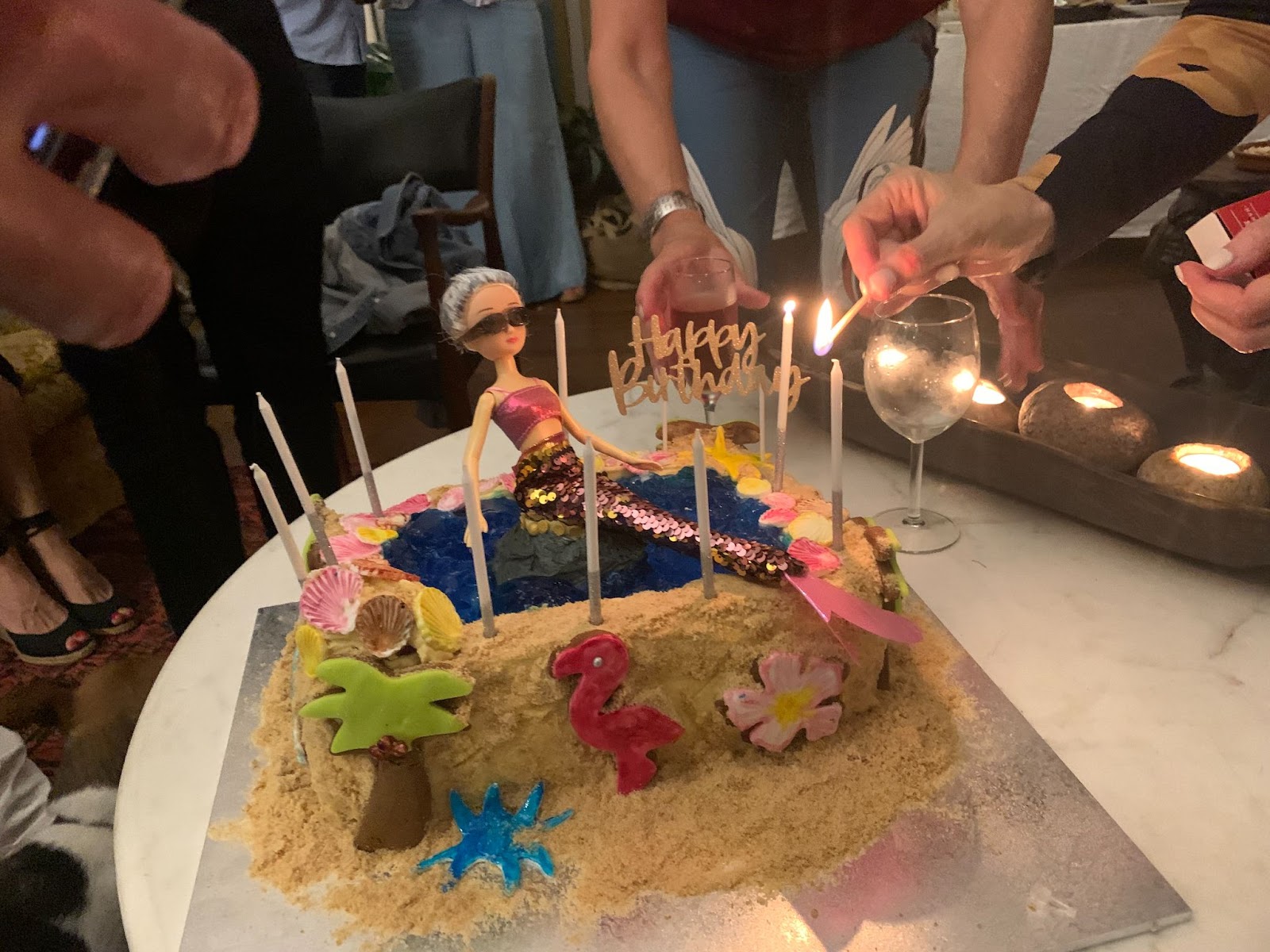
Is 60 really the new 40? Try this little trick to maintain a positive attitude on age
Search for yourself - online media is chock-a-block with stories claiming that sixty is the new forty.
They are obviously designed to make us feel good, and surveys boast of seniors' renewed energy and playfulness.
Take this cake for a friend who turned fifty-nine at the weekend.
A vision to carefree youthfulness - even complete with a blue vodka jelly perfectly reflecting the birthday girl herself.
But could we be kidding ourselves? We may feel this way but do others believe it? And what's so wrong with being sixty anyway?
It's the endless surveys that keep feeding the 'sixty is the new forty' genre.
The latest one in the UK press finds, not very surprisingly, that almost half of over-60s insist old age starts at 76, and most feel 12 years younger than they are.
The most fun finding was that one in ten reckon they have more energy than their children. They put their new lease of life down to playing sports, solving puzzles and spending time with grandchildren (presumably parked with grandpa by their exhausted parents)
The scientifically minded will put this down to improvements in medical care and better health, but whatever the cause and effect, attitude must also be involved.
One trick to change your attitude, if not anyone else's, is this: start counting your age backwards when you get to a certain age. My 59-year-old pal might never reach 60 as she'll be 58 next year and so on.
Its proponents say it's not lying and do not advocate claiming this sudden age reversal publicly. It's about refashioning our attitude and sometimes po-faced fear of growing old. If you can't stop it, you may as well play with it.
After all, someone may soon say, if they haven't already, that eighty is the new sixty.
Any information contained in this communication is general advice, it does not take into account your individual circumstances, objectives, financial situation or needs.

